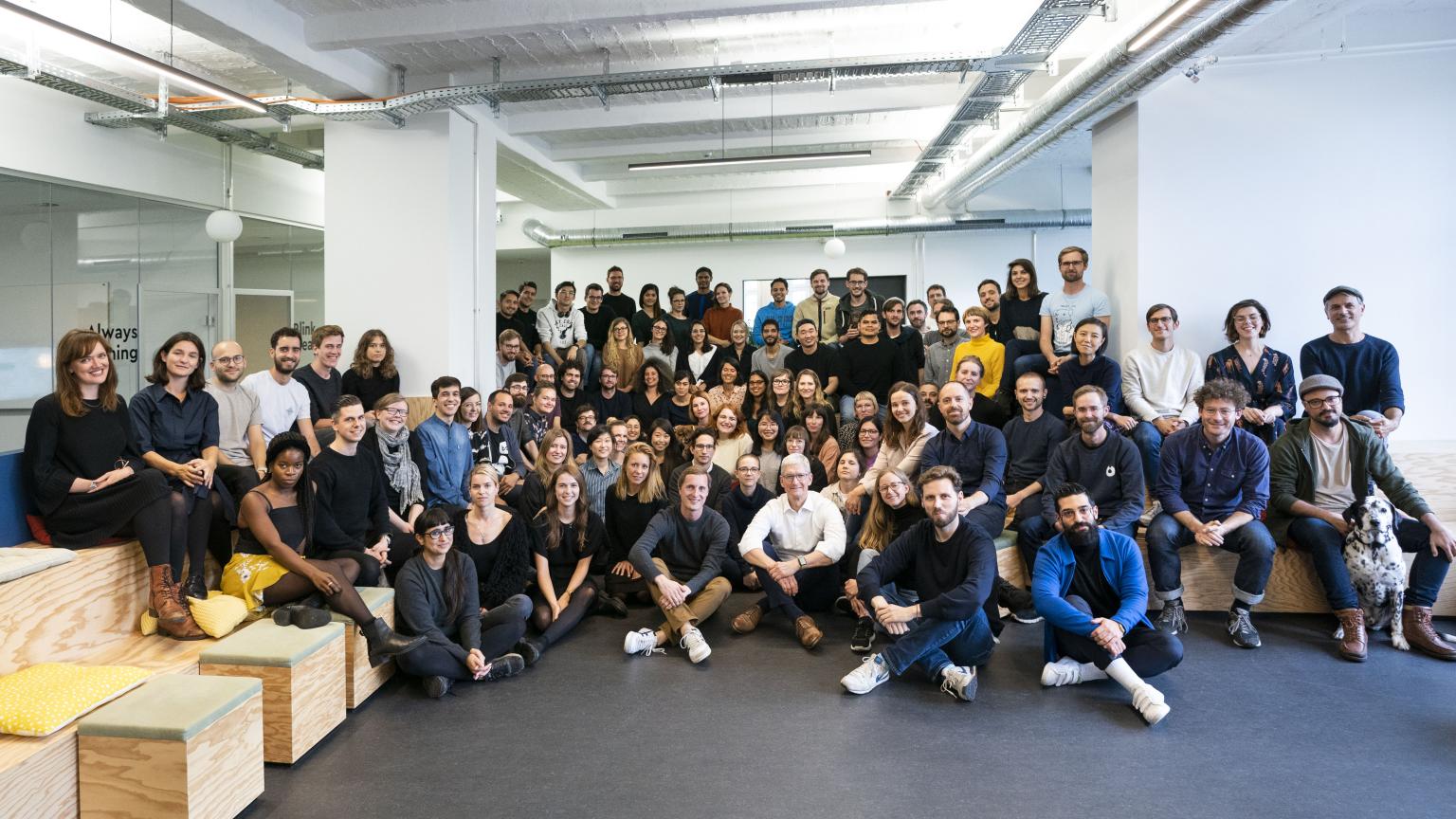Adventurous Octogenarian on Sowing Tech-Driven Seeds
The truth is that eventually, the majority of Americans do retire. Employees in their 50s and early 60s are frequently considering retirement. Men retire at the average age of 64.6 years, while women work until the age of 62.3. These days, there’s an ongoing trend when people choose to retire at young ages for specific reasons.
In that environment, there’s an 89-year-old man who is still rocking the game as he has since his youth. That is legend Alan Patricof.
17 years ago, as technology was starting to change how we live, entrepreneurs with bold vision and disruptive ideas wanted to be a part of the transformation. However, these individuals were lacking lots of support, especially finance.
That led to Alan Patricof’s decision to form Greycroft capital firm, with the ambition to identify and support the next generation of disruptive startups – to help them to realize their full potential by providing them with the resources and support they need to succeed.
Whilst Greycroft is still a minor in 2023, its Founder Alan Patricof is one of the forefronts that have been working and setting up the foundation for the nation’s economy. With a long history of operation, the journey of Patricof and his capital is hotter than ever. Let’s read on.
The Man Who Paved the Way for Silicon Valley
“There’s too much retirement at 60 now,” says the pathbreaking venture capitalist Alan Patricof, who launched his second fund, Greycroft, at the age of 72 and his third, Primetime Partners, in 2020 at the age of 85.
He goes out most nights, takes long bicycle rides in the Hamptons on weekends, and plans to run—or walk—his sixth New York City Marathon this fall. “I don’t know how to do nothing,” he says over video from his Manhattan apartment, “There are possibilities in every time of life.”
The legend is an American investor who founded the venture capital firm Alan Patricof Associates in 1969. He was born on October 22, 1934. Beginning in 2001, he took a five-year hiatus from day-to-day management of his company to promote entrepreneurship in the developing world.
Patricof returned in 2006 to establish Greycroft, which will manage $3 billion by 2022. He has served on numerous boards and commissions during three administrations. Patricof is now the chairman and co-founder of Primetime Partners.
The legend has a 50-year career in venture capital and has been integral in expanding the field from a foundation of high net-worth individuals to its current position with broad institutional backing, as well as playing a key role in the critical legislative initiatives that have guided its evolution.
Patricof has always said that instinct is the most important factor in becoming a successful venture capitalist after you have polished all of your skills to perfection.
The harsh reality is that instinct is a critical component of venture capitalists’ success or failure worldwide. You cannot become a good venture capitalist without sound instincts, no matter how hard you work.
“First,” he noted, “you have to be curious. Adopt the attitude that you can learn from everything. You have to learn from failure and success and keep on thinking during times of trial and error. You need to experience a variety of situations. But above all, find a good mentor and learn as an apprentice.”

With that in mind, he has helped to build and grow a number of major global corporations, including America Online, Office Depot, Cadence Systems, Cellular Communications, Inc., Apple Computer, FORE Systems, NTL, IntraLinks, Audible, Axios, and Wondery. He also founded and served as the chairman of the board of New York magazine, which later acquired the Village Voice and New West magazine.
Alan Patricof, a social and political fixture in New York City, has spent his entire career combining his love of the arts, politics, theater, and public service without sacrificing family or business success. And, throughout his incredible career, Patricof never let anything get in his way, including not halting at red lights.
Patrifcof intends to continue, setting new goals for himself. He said that his next challenge would be determining “what I am going to do next year.” And one of the things he will continue to do is foster disruptive startups with Greycroft.
Greycroft, as a full life cycle investor, employs a thesis-driven approach to identify companies that are transforming their industries and then invests capital and expertise throughout their growth trajectory. Their strategy in architecting a successful business is comprehensive, up to date, and the most special element is they don’t eat entrepreneurs up.
Upbeat the Potential of Startups without Being on Board
Greycroft works with entrepreneurs from seed funding to exit, providing capital and expertise to support their vision. The venture capital firm cultivates long-term relationships with entrepreneurs and has invested more in the last year in a dedicated platform team of C-level operators to help them grow.
The firm invests in both consumer and enterprise startups, with a preference for consumer ones.
Greycroft will invest up to $15 million in a portfolio company over multiple rounds, with an initial investment of $0.5 to $10 million. Checks from the firm’s growth fund start at $10 million, and it says it will invest up to $50 million in any one company.
Greycroft remains one of the only venture capital firms with no minimum ownership threshold and no board seat requirement, which has resonated well with entrepreneurs who all-too-often hear that VCs require 20%+ ownership.
Furthermore, the capital firm takes a syndicate-friendly approach and always includes at least one institutional co-investor. Other VCs and angel investors, who are frequently cut out of their best seed investments by larger funds, have praised this. Greycroft is happy to make room for other groups even when they are leading an investment.
Their model has performed remarkably well in good times and bad, which is why they aren’t in a hurry to change it, despite the pressure to do so.
Greycroft is uniquely positioned to serve entrepreneurs who have chosen them as partners, with offices in two of the world’s most important business hubs, New York and Los Angeles.
When entrepreneurs accept capital from Greycroft, they have the full force of the company behind them. Their portfolio CEOs have access to collective networks, expertise, and a community of like-minded founders.
The firm can totally leverage its extensive network of media and technology industry connections to assist entrepreneurs in gaining visibility, developing strategic relationships, bringing their products to market, and growing their businesses.
Today, not only entrepreneurs need to do marketing for their product, but from the investors’ perspective, they need to build a name in the industry. After a long journey filled with ups and downs in life, Alan Patricof surely knows how to do marketing. His strategy on building a good reputation, on the other hand, is not limited only to the venture capital landscape.

Nurture a Good Reputation in Diverse Landscapes
Every day for the last twenty years, without fail, someone approaches him and begins the same way.
“You don’t remember me, but…” And it’s, “You don’t remember me, but you invested in my company.” “You don’t remember me, but I worked for your first firm.” “You don’t remember me, but you answered my telephone call when no one else would.”
As a result, he decided to publish an article on LinkedIn titled “You Don’t Remember Me, But.” It was about how to build a reputation so that when people approach you, they don’t remind you of something you’d like to forget.
According to him, learning how to say no in a way that doesn’t hurt someone’s feelings is an important part of being in the venture business. It’s important to remember that no matter how crazy an idea appears to be, it’s the most important thing in the life of the person who believes in it. And turning it down is akin to telling them their child is ugly.
That’s why considering the way to treat people nice has always been in his set of moralities.
“I have a policy I’ve always practiced: I return every phone call I get within twenty-four hours. I still write handwritten notes, and I try to remind myself every day that treating people well is important to building a reputation and a career” Alan Patricof once said.
Patricof became engaged in venture capital because he was curious. As stated by Alan Patricof, that is the most important characteristic for someone working in venture capital. To wake up and take in your surroundings, both new and old. Read everything you come across and follow it through to find out where it came from or what it’s about.
The legend said that curiosity is the single most important element. But it is just a single spice, you need to add it into the bowl of financial skills, good judgment. It will be an art.
Alan Patricof develops the concept of pattern recognition over time. Eventually, he can detect it in entrepreneurs who are just starting out: their skill level, their passion, their determination, and their ability to build a team. And he believes that these are the qualities that will make someone a good venture capitalist.
He shared, “Again, it all fits together. I am someone who still, to this day, attends conferences. And whenever I address our internal meeting every year, I always say the same thing. If you go to an event like today’s discussion, if you come away with one good idea, it’s worth the effort.”
Patricof added, “Unfortunately, most of us go to conferences, and we are trying to absorb a lot. I always say just look for one good idea, one good, relationship. You develop one good idea. You walk away with one new concept.”
The investor wants to encourage all the people who work for his firms once they go places to always make new friends.
“Go put yourself in an area where you are uncomfortable, and that’s the way you build relationships. Because the people you meet on your way up are going to be with you for the rest of your life,” said Alan Patricof.
With a sharp focus on the potential sectors, and the approach to working with startups have marked Greycroft a beautiful name in the industry. Along with the creditability, its track record partly speaks about its success in the game.
Foster Seed Ideas to Bring in Big Cash Later

Greycroft is a respectable brand in technology investing. Starting a career in venture capital is difficult, but there are far worse places to begin. There are many VC funds out there and several of them do not have close to the track record of the investor.
In addition, the firm has a strong track record of successful investments. The firm has raised a total of $2 billion across 12 funds, the most recent of which was Greycroft Growth III, which was announced on October 6, 2020 and raised a total of $368 million. The fund is well-positioned with this new fund to continue its investment strategy of supporting early-stage technology companies with strong growth potential.
Greycroft has made 762 investments as an experienced investor, with their most recent investment on February 14, 2023, when Stakeholder Labs raised $4.2M. Furthermore, the firm has made 168 diversity investments to date, with the most recent being on January 10, 2023, when Howdy raised $5M.
Greycroft has had 121 exits over the years, with some of their most notable exits including Bumble, SEMrush, and Archer.
Greycroft manages over $1 billion in assets and has made over 200 investments in leading companies such as Acorns, App Annie, Bird, Botkeeper, Bright Health, Boxed, Braintree, Buddy Media, Everything But The House, Extreme Reach, Huffington Post, Icertis, JW Player, Maker Studios, Plated, Scopely, Shipt, TheRealReal, Thrive Market, Trunk Club, Venmo, WideOrbit, and Yeahka since its inception.
In today’s world, as the pandemic came and stole millions of lives, we turned our eyes to the healthcare sector. Two years later, it’s clear that some parts of our lives will never be the same, particularly what we expect of and how we consume health care. That’s the new major focus of Greycroft, even before the Covid 19.
Shift Focus to Healthcare to Help Millions of People
On the one hand, healthcare is a $3.8 trillion industry, with roughly 80% of that going toward care and treatment today. It is well documented that long-term healthcare costs in the United States are unsustainable, necessitating technological and system-wide innovation.
Optimists would argue that entrepreneurs are already building businesses that reduce healthcare costs and increase access to care, often with the help of venture capital.
Despite recent market volatility, several care delivery businesses have already gone public or been acquired for billions of dollars, and several private companies have reached billion-dollar valuations. Venture capitalists have discovered opportunities with billion-dollar potential.
As early investors in Bright Health, Thirty Madison, HealthVerity, Medly, Eden Health, Sapphire Digital, and many others, Greycroft has witnessed the decades-long overnight success of digital health firsthand.
They’ve invested in one overarching thesis over the years: the future of healthcare will be more consumers driven.
The venture capital firm is more excited about digital health than ever before and believes there is so much more to be done. As always, they believe the best ideas start with a conversation. And they want to be part of health-tech companies, no matter how early.
The venture capital firm has partnered with many health-tech startups over the last few years, including Medallion (credentialing), Ribbon and Redox (provider and payor data APIs), and Wheel (staffing), to name a few.

Many well-known companies laid off thousands of employees last year. When the labor market shifts and competition for talent increases, the importance of comprehensive employee health offerings is highlighted by the Great Resignation.
The capital has made several investments in this room: ianacare (caregiving), Eden Health (primary care & navigation), and Elevate (consumer-directed benefits platform), among others. The fund anticipates that this category will continue to grow as employee expectations shift.
Bottom lines
There were many similarities in the past. It was an emerging industry. There were a great deal of skeptics around. There were few risk takers around, and there was much suspicion about whether the concept of venture capital had a future in society. Fifty years later, there is no doubt that venture capital is important in almost every country on the planet.
Alan Patricof has reached the age when most men consider retirement. But he walks faster than almost any of the office’s under-thirties. He is not taking that path alone but stay intimate to startups that’s going to fix the world.









